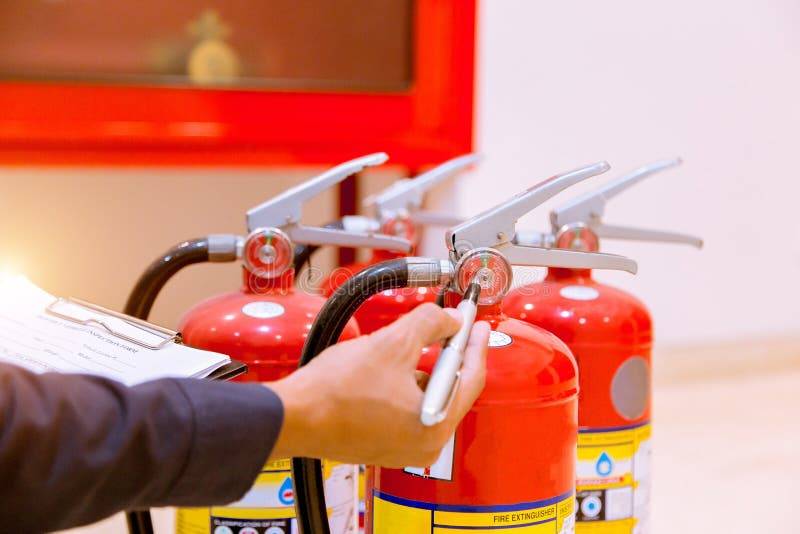Fire Alarm System Service
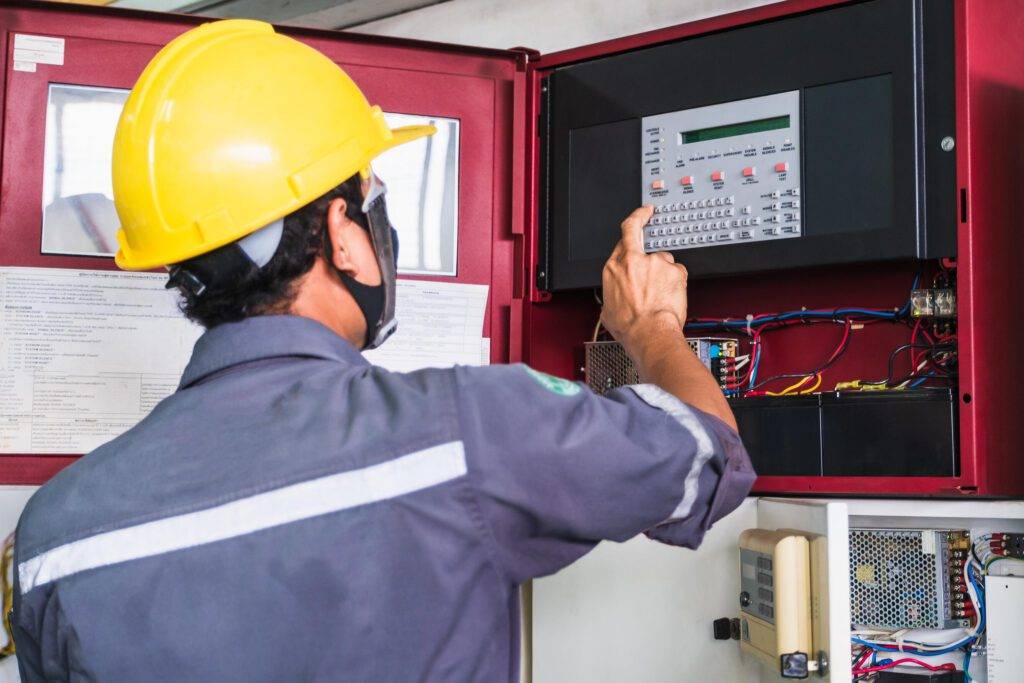
Fire Alarm System Service
alarm systems are essential for protecting lives and property, as they provide early warning in the event of a fire emergency. Understanding the importance of fire alarm systems is crucial for every building owner or manager. These systems can detect smoke, heat, or flames and alert occupants to evacuate safely. There are different types of fire alarm systems available, each with its own features and benefits.
Conventional Fire Alarm System
Conventional fire alarm systems consist of a central control panel that receives signals from various detection devices such as smoke detectors, heat detectors, and manual call points. These devices are wired in zones, allowing for the identification of the general area where the fire is detected. Conventional systems are cost-effective and suitable for smaller buildings with simple layouts.
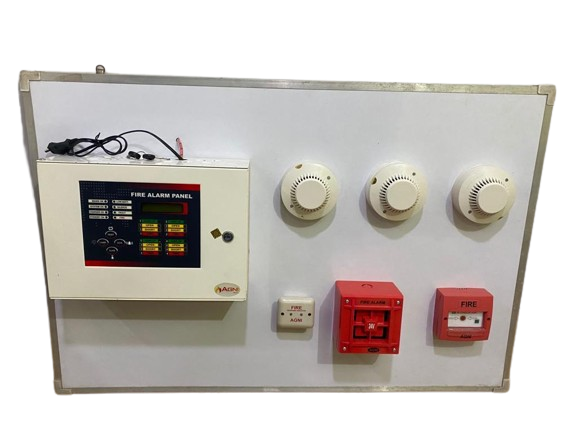
Addressable Fire Alarm System
Addressable fire alarm systems offer more advanced features compared to conventional systems. They allow each device to have a unique address, providing precise information about the location of the fire or fault. Addressable systems are ideal for larger buildings or complexes, as they enable zoning and provide detailed event information, making troubleshooting easier.
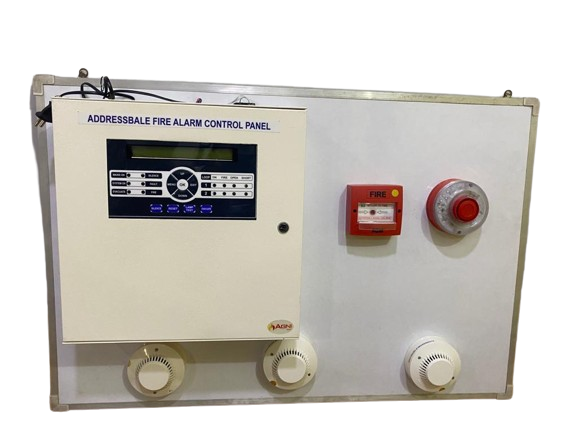
Wireless Fire Alarm System
Wireless fire alarm systems have gained popularity due to their flexibility and ease of installation. Instead of using traditional wiring, these systems rely on wireless communication between devices. They are particularly useful in situations where wiring is not feasible or would cause disruption. Wireless systems can be just as effective as their wired counterparts and offer convenience during installation and maintenance.
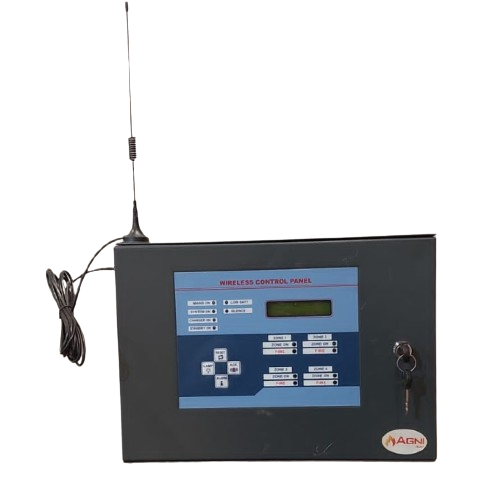
Fire Alarm Installation
Proper planning is crucial when it comes to fire alarm installation. Before diving into the process, it is essential to assess the building’s needs and ensure compliance with local fire safety regulations.
- Assessing the Building’s Needs
When assessing the building’s needs, several factors should be considered. Evaluating the size and layout of the building helps determine the number and placement of detectors, sounders, and control panels. Identifying potential fire hazards, such as areas with flammable materials or high heat sources, allows for a more targeted approach to fire alarm placement. Additionally, it is vital to comply with local fire safety regulations to ensure the system meets the necessary standards and requirements.
- Determining the Right Fire Alarm System
There are various aspects to consider when determining the right fire alarm system for a specific building. Analyzing detection methods is crucial – whether optical smoke detectors, heat detectors, or a combination of both are the most appropriate. Choosing suitable alert devices, such as sounders or strobes, depends on factors like the size of the building and the needs of its occupants. It’s also worth considering incorporating supplementary safety features like emergency lighting or voice evacuation systems for enhanced safety measures.
- The Installation Process of Fire Alarm Systems
Installing a fire alarm system requires professional expertise to ensure that it functions optimally in case of emergencies. Hiring professional fire alarm installers is highly recommended to guarantee a seamless installation process.
- Hiring Professional Fire Alarm Installers
Researching reliable service providers is the first step in hiring professional fire alarm installers. Verify their qualifications and certifications to ensure that they possess the necessary expertise for the task. It is advisable to request multiple quotes from different installers for cost comparison and to find the best fit for the specific requirements.
- Steps Involved in Fire Alarm Installation
The installation process of fire alarm systems typically involves several key steps. First, the site needs to be prepared for installation, ensuring that the necessary infrastructure is in place. This includes mounting control panels, typically in a central location, and wiring them to the various detection devices throughout the building. Detectors, sounders, and call points need to be correctly installed and connected to the control panel. Proper installation techniques are crucial to ensure the system functions efficiently and reliably.
- Testing and Maintenance of Fire Alarm System
Regular testing and maintenance play a crucial role in ensuring fire alarm systems are fully functional and ready to respond in case of emergencies.
- Importance of Regular Testing
Conducting periodic functional testing is essential to guarantee that the fire alarm system operates as intended. This involves simulating alarm activation scenarios to verify the system’s responsiveness and performance. By regularly testing the system, any faults or issues can be identified and promptly addressed, minimizing the risk of false alarms or system failures during an actual emergency.
- Routine Maintenance Procedures
Routine maintenance is necessary to keep the fire alarm system in optimal condition. Cleaning and inspecting fire alarm components, such as smoke detectors and control panels, helps ensure their proper functioning. Additionally, batteries should be replaced as needed, and any faulty devices must be promptly repaired or replaced. System software and firmware should also be regularly updated to take advantage of new features and enhancements.
- Compliance and Reporting
Compliance with fire safety standards is of utmost importance to maintain a safe environment and ensure the effectiveness of fire alarm systems.
- Compliance with Fire Safety Standards
Understanding national and local fire codes is essential to ensure compliance with regulations specific to fire alarm installation. Adhering to these codes guarantees that the system meets the necessary safety standards. Proper documentation and record-keeping are essential to demonstrate compliance and provide a historical reference for any inspections or certifications. Scheduling regular inspections and certifications further ensures that the system is in line with the required standards.
- Fire Alarm System Reporting
A comprehensive reporting system is vital to monitor the performance of the fire alarm system. Generating incident reports helps track past events and investigate potential issues. Monitoring and logging system events enable a proactive approach to maintenance and troubleshooting. It’s important to adhere to privacy and data protection regulations, ensuring sensitive information collected by the system is handled with appropriate security measures.
- Summary
In this comprehensive guide, we have explored everything you need to know about fire alarm installation. We emphasized the importance of fire alarm systems and discussed different types available in the market. We then delved into the planning phase, helping you assess your building’s needs and select the right fire alarm system for optimum safety. Next, we guided you through the installation process and detailed key steps involved. Additionally, we highlighted the significance of regular testing and maintenance to ensure the system’s effectiveness. Finally, we addressed compliance with fire safety standards, reporting procedures, and offered practical tips to keep your fire alarm system in top-notch condition.
- Frequently Asked Questions
1. Why is it crucial to test and maintain fire alarm systems regularly?
Regular testing and maintenance are crucial to ensure fire alarm systems are fully functional and ready to respond in case of emergencies. By conducting periodic tests, any faults or issues can be identified and promptly addressed, minimizing the risk of false alarms or system failures during an actual emergency. Routine maintenance keeps the system in optimal condition, guaranteeing its reliability.
2. Are there any fire alarm installation requirements specific to residential buildings?
Yes, there might be specific requirements for fire alarm installation in residential buildings. These requirements can vary depending on local building codes and regulations. It’s important to consult with local authorities or experts knowledgeable in fire safety to ensure compliance with residential fire alarm installation requirements.
3. Can I install a fire alarm system by myself, or should I always hire professionals?
While it is possible to install a fire alarm system by yourself, it is highly recommended to hire professionals for the task. Professional fire alarm installers possess the necessary expertise and experience to ensure a seamless installation process. They also have up-to-date knowledge of fire safety regulations and can provide valuable guidance in selecting the right system for your specific needs.
4. What are the common fire alarm system monitoring options available?
Common fire alarm system monitoring options include central station monitoring, where an off-site facility continuously monitors the system and alerts the appropriate authorities in case of an alarm. There are also remote monitoring options that allow building owners or managers to access the system’s status and receive notifications on their smartphones or other devices.
5. How often should fire alarm system inspections and certifications be conducted?
Fire alarm system inspections and certifications should be conducted regularly as specified by local fire safety regulations. The frequency can vary depending on factors such as the type of building, its occupancy, and the applicable codes. It is important to consult with local authorities or fire safety experts to determine the appropriate inspection and certification intervals for your specific situation.

